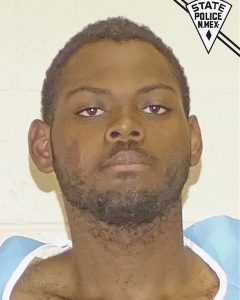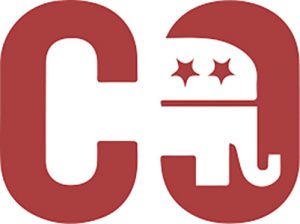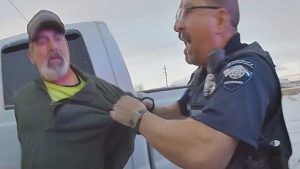THE OLD WEST — Once there was a poor young man who made his way to Huerfano County from the Old South, but when he got here, it proved to be just the first leg of an incredible life’s journey. John Abner Albertus Ownbey was born in North Carolina in 1854. When he was still a child, the family moved south to Union County, Georgia, the same place so many Huerfano pioneers hailed from. His father was killed in the Battle of Chicamauga in 1863, leaving John’s mother Harriett, nee Chastain, a widow with several young children. The family plantation lay in the path of Sherman’s infamous March to the Sea, and was laid waste. As Ownbey later put it, “a crow flying through that country would have had to carry its own provisions.” Harriet Ownbey – she had remarried so gained even more family – had plenty of relatives in the area, and when some of them determined to make the trip west to settle in Huerfano County, she loaded up and went with them. It was 1870, and John Ownbey was 16 years old. Ownbey’s first job at that tender age was as a herd boy for an
emigrant train, guarding the loose stock along the trail. A few years later he found work with Ben Holliday who operated a fast freight line, a slow freight line, and the Pony Express. Ownbey was said to have crossed the plains no fewer than 24 times in the days before the railroad. Sometime during his life on the prairies, he worked for Buffalo Bill Cody when the latter was escorting Grand Duke Alexis, later Emperor and Tsar of Russia, on a buffalo hunt in eastern Colorado. They became friendly, and Ownbey years later traveled to St. Petersburg to see his old hunting buddy. He also was said to have met the Prince of Wales, better known as Edward VII, during a trip to England. Once he’d earned a grubstake, John went to Blackhawk to make his fortune in gold mining. He accepted work, instead, as an underground miner for someone else. On the side, he took lessons from a Catholic priest in geology, metallurgy and assaying. Thus he became an educated miner and, later, a mining engineer. From Blackhawk, Ownbey went on to Virginia City, Nevada. There he made some influential friends. He was sent on behalf of the owners of the famous Comstock Lode to New York to find financial backing for development where he met his most influential friend, a fellow by the name of J. Pierpont, or J.P., Morgan. Ownbey traveled on behalf of his new friends and his occupation to Australia, Peru and South Africa, a long way from home for a poor Southern boy. He earned $50,000 one year, plus 10 percent of the profits on his mining speculation. By now, he was known as the man who made and spent huge amounts of money on three continents. But he would make his fortune in North America, too, his fourth continent. In Cripple Creek, he worked with Morgan and Ogden Mills to develop and operate mines. Along the way, he had earned the honorary title of Colonel, and began calling himself James A. instead of John A.A. Ownbey. Gold and silver mining was becoming harder to make a fortune at, so Ownbey turned his attention to coal. He, his mother, and at least one brother, F.M., had taken up claims and purchased ranches in Middle Creek Canyon where coal was being mined even back in the 1880s. He now decided the Maxwell Land Grant along the Colorado-New Mexico border was worth his time. Studying up on the Wootton Land and Fuel Company, begun in 1897 by Dick Wootton, Felix Baca and Casimiro Barela, he saw the potential of the land was tied to the presence of the Atchison, Topeka and the Santa Fe Railroad that crossed the land. J.P. Morgan and Ogden Mills Jr. were interested, as was a former president of the Santa Fe railroad, B.P. Cheney. The men took an option on the Wootton Company land. They began to open and develop mines just 14 miles southwest of Trinidad. Some excellent veins were found, and within three years, four mines had been opened. In 1908, the La Veta Advertiser noted Ownbey had obtained control of more than 22,000 acres of the Wootton Estate. He put several of his many La Veta relatives to work there. The future was so promising the partners refused an offer for the Wootton property of $6,500,000. By 1910, the mines were shipping 500 to 600 tons per day. Meanwhile, on Wootton’s old grant, timbering projects were taking place, not only to supply the new coal mines, but for sale to the Santa Fe and others. The partners were also raising hundreds of Herefords and farming on the land. The next gambit was opening a company store. Soon they were realizing 15 to 30 percent profits on the merchandise, which included vegetables from their farming operations. Then the men opened a game preserve. This was planned to be an exclusive private refuge for themselves and their privileged friends. Remembering the impressive two-story home Uncle Dick Wootton had built on the property, which had burned down, the men built a hunting lodge as a replica on the same site. Naturally, these partners plotted and schemed their every move, but the Santa Fe Railroad, the State of Colorado and Colorado Fuel and Iron fought their every machination, and often out-maneuvered them. By 1911, there were 45 homes and boardinghouses in the mining camps. There was a school, hospital, and saloon to serve the hundreds of miners and their families. Never let it be said Ownbey had but one iron in the fire at a time. He had in the past few years been involved with the Colorado Gold Dredging Company at Grayback, just west of the summit of La Veta Pass. About 1908, he sued the Denver and Rio Grande Railroad for laying tracks across his land west of La Veta without permission. Ownbey won. J.P. Morgan died in 1913. His son then sued Ownbey for present and past money due, or, thought by him to be owed. Huge sums enriched attorneys on both sides of the question. Ownbey won. Or at least, Ownbey won the first round. Morgan had very deep pockets indeed, and in later suits and decisions, he nearly bankrupted poor old J.A. Ownbey. He disappeared from financial scenes. Ownbey must have been a persuasive talker, even in his old age. In 1924, he won the nomination for candidate for U.S. Representative from Colorado for the Colorado Workers organization. Somehow this old capitalist had convinced the workingmen of his sympathy and sincerity. Ownbey lost. In 1926, he ran for the U.S. Senate as an Independent based on his support of equal rights and a “Golden Rule” ideology. He lost. At one time, Ownbey had been acknowledged as one of Colorado’s wealthiest men. In later years, he filled columns of newspapers and magazines and lectured on his battles both legal and financial. He also penned articles about mines and mining for learned publications. John/James Abner Albertus Ownbey died in August 1927 at his luxurious home in Denver. Although not penniless, he had lost his riches of former days.




